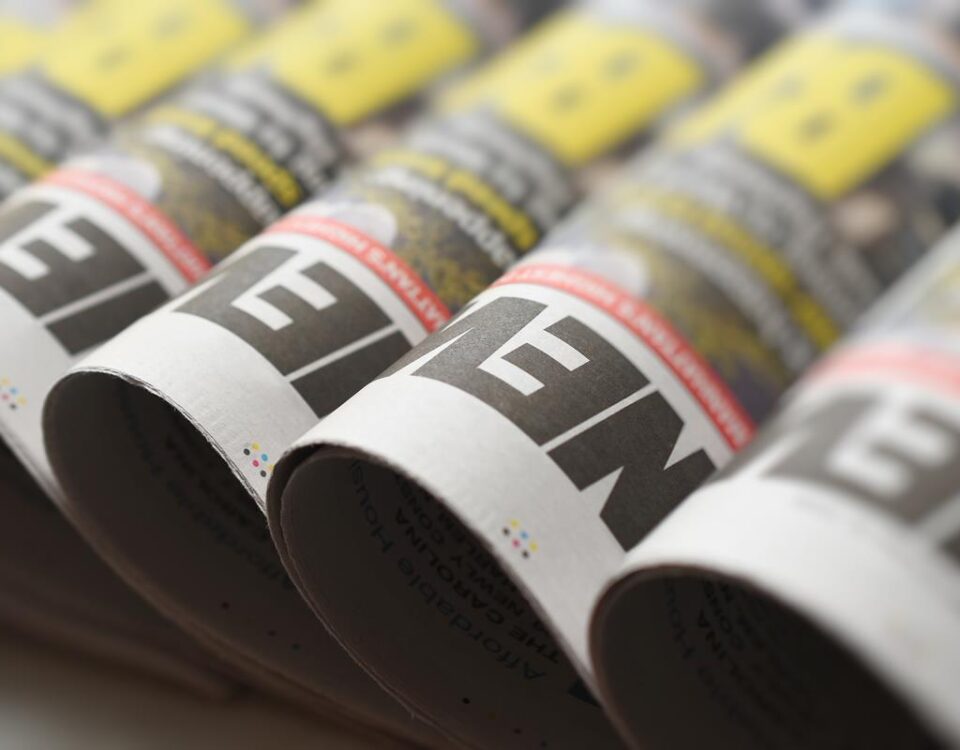
If Trump Dies Before Inauguration
November 30, 2024
“ Overreach” New Media Buzzword
December 2, 2024ABC’s This Week’s Fall From Grace
ABC’s This Week with David Brinkley began as a serious platform for political discourse when it premiered in 1981, positioning itself as one of the major Sunday morning talk shows alongside Meet the Press and Face the Nation. Under Brinkley’s stewardship, the show built a reputation for in-depth interviews and balanced political discussions, known for featuring tough questioning of politicians from both sides of the aisle. However, in recent years, This Week has faced criticism for a decline in gravitas, as it has increasingly leaned toward a leftist political bent, becoming part of a larger media landscape where ideological bias and sensationalism are more prevalent than the objective journalism of previous decades.
During Brinkley’s era, the show was notable for its gravitas and intellectual rigor. Brinkley himself, with his calm demeanor and reputation as a seasoned journalist, embodied an era of television news that prioritized factual, sober reporting over partisan commentary. The program featured a roundtable discussion format that included a variety of viewpoints, and while it touched on important political and social issues, it rarely veered into the partisan divides that dominate today’s media. The goal was to inform the audience, rather than to persuade them toward a particular ideological perspective.
However, the dynamics of This Week have shifted, especially as media culture has changed. One major factor in the decline in seriousness is the rise of political polarization, which has affected the broader journalistic landscape. As the U.S. has become more divided, news outlets have increasingly catered to specific ideological audiences, and This Week has followed suit. Like many other Sunday morning political shows, it has aligned itself more with progressive politics, focusing heavily on issues that resonate with left-leaning viewers such as climate change, social justice, and critiques of the conservative movement.
One aspect of this shift has been the selection of guests and commentators. In earlier years, This Week prided itself on presenting a balance of voices, ensuring that both liberal and conservative perspectives were well-represented. In recent times, however, the program has been criticized for featuring predominantly liberal or progressive commentators, with fewer conservative viewpoints being given airtime. This narrowing of perspectives can make the show feel less like a balanced forum for discussion and more like an echo chamber for progressive ideas. When conservative voices are featured, they are often outnumbered or portrayed as being on the defensive, reinforcing the perception of the show’s leftward tilt.
In addition, the program’s shift toward more sensationalized content reflects the broader pressures facing modern media. Like many news outlets, This Week has had to compete with the fast-paced, often emotionally charged content that dominates social media and 24-hour cable news channels. As a result, discussions on the program sometimes prioritize hot-button cultural and political issues that generate strong reactions, rather than the kind of deep, nuanced analysis that was a hallmark of Brinkley’s era. To capture ratings and compete in a crowded media landscape, This Week has sometimes leaned into stories that are more emotionally charged and ideologically polarizing, reducing the show’s overall gravitas.
Another contributing factor is the tendency to frame issues in a way that fits a progressive narrative. For example, segments that focus on racial inequality, climate change, or economic justice, while critical issues are often framed with assumptions that align more closely with the Democratic Party’s agenda. This framing can give the impression that the show is more focused on advocacy than on dispassionate reporting. Although This Week still engages in investigative reporting and interviews with policymakers, its choice of topics and the way they are discussed frequently reflect progressive priorities, leaving some viewers feeling that conservative viewpoints are either marginalized or treated with less seriousness.
The program has also been affected by the rise of personality-driven journalism, where moderators and hosts inject their own biases or ideological slants into interviews. In recent years, hosts such as George Stephanopoulos, who previously served as a senior advisor to Democratic President Bill Clinton, have been seen as emblematic of the shift toward partisan media. While Stephanopoulos is a skilled interviewer, his political background has led some to question the objectivity of the program, particularly when it comes to how certain topics are handled or how aggressively certain guests are questioned.
This has contributed to a perception that This Week is no longer the nonpartisan, rigorous journalistic platform it once was under Brinkley’s stewardship. To regain its former gravitas, This Week would need to recommit to providing a balanced platform for all viewpoints and focus on the deeper, more substantive analysis that made it a cornerstone of Sunday morning political discourse. Don’t hold your breath waiting for it while Democrat political activist George Stephanopoulos is running around in the building.
C. Rich
CRich@AmericaSpeaksInk.com

C. Rich is the voice behind America Speaks Ink, home to the America First Movement. As an author, poet, freelance ghostwriter, and blogger, C. Rich brings a “baked-in” perspective shaped by growing up on the streets and beaches of South Florida in the 1970s-1980s and brings a quintessential Generation-X point of view.
Rich’s writing journey began in 2008 with coverage of the Casey Anthony trial and has since evolved into a wide-ranging exploration of politics, culture, and the issues that define our times. Follow C. Rich’s writing odyssey here at America Speaks Ink and on Amazon with a multi-book series on Donald Trump called “Trump Era: The MAGA Files” and many other books and subjects C. Rich is known to cover.
“America Speaks Ink is a Google News approved source for Opinion”





